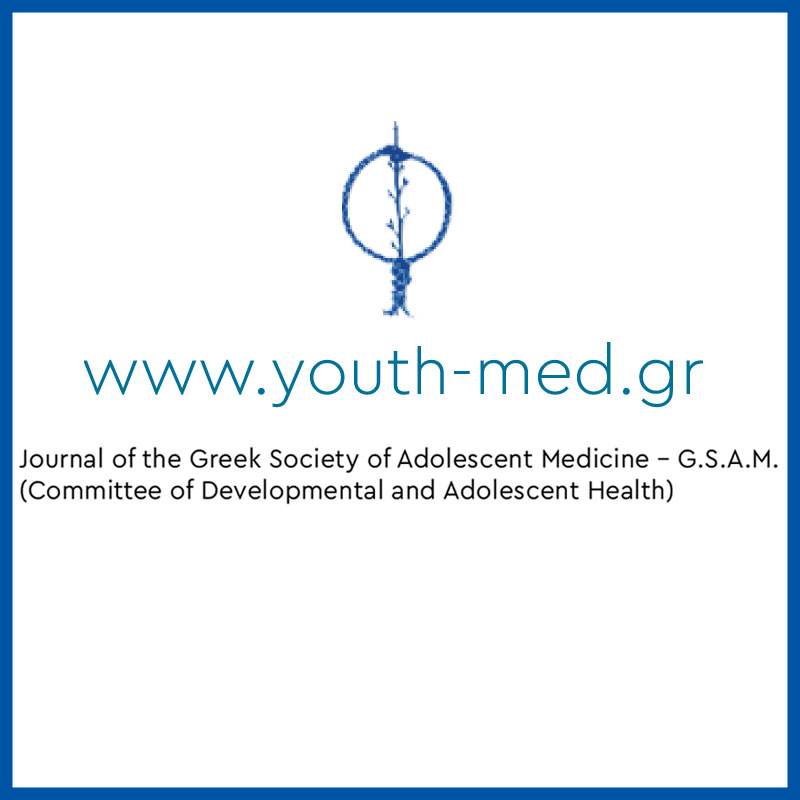Substance use by an adolescent with a history of childhood cancer: the role of counseling in risk management
https://doi.org/10.54088/k87djd
Abstract
Background: Childhood cancer survivors may have a tendency to risk-taking. Adolescents with a history of childhood cancer experience psychological and neurocognitive long-term effects that also impact negatively their social life. Adolescents are exposed to many risk factors in order to be socially accepted, such as drug use, alcohol use, as well as provocative behavior at school and in the wider social environment. Therefore, the counseling process is vital, to cope with the negative effects of the disease and ensure a positive adjustment in adulthood. Case Report: The present case study is focused on an adolescent male with a history of childhood cancer (acute lymphoblastic leukemia) who suffered cognitive effects on his memory that resulted in poor school performance and stress and reported cannabis use. The counseling intervention was based on the combination of cognitive-behavioral and systemic approach, and family counseling, with the aim to enhance the adolescent’s socialization through psychosocial interventions. The duration of the counseling was seventeen sessions. The results of the intervention showed that the initial goal of the student was achieved, i.e. to socialize with his peers and to give up substance use. At the same time, the adolescent discovered many hidden aspects of himself, learned to trust, to communicate without fear and shame, to set limits in the relationships with his family and to claim his rights. The psychological, emotional and moral support of childhood cancer survivors by mental health professionals is important, even years after treatment, to ensure adolescent smooth personal development and social integration.
References
Bender, K., Tripodi, S. J., Sarteschi, C., & Vaughn, M. G. (2011). A meta-analysis of interventions to reduce adolescent cannabis use. Research on Social Work Practice, 21(2), 153-164.
Berndsen, M., & Luckner, J. (2012). Supporting students who are deaf or hard of hearing in general education classrooms: A Washington state case study. Communication Disorders Quarterly, 33(2), 111-118.
Biolcati, R., & Cani, D. (2015). Feeling alone among friends: Adolescence, social networks and loneliness. Webology, 12(2), 1.
Bronfenbrenner, U. (1979). The ecology of human development experiments. Cambridge, MA: Harvard University Press.
Gürsoy, F., & Bıçakçı, M. Y. (2006). A study on the loneliness level of adolescents. Journal of Qafqaz, 18, 140-146.
Goossens, L., Lasgaard, M., Luyckx, K., Vanhalst, J., Mathias, S., & Masy, E. (2009). Loneliness and solitude in adolescence: A confirmatory factor analysis of alternative models. Personality and Individual Differences, 47(8), 890-894
Hansen, D. J., Nangle, D. W., & Meyer, K. A. (1998). Enhancing the effectiveness of social skills interventions with adolescents. Education and Treatment of Children, 489-513.
Haustein, K.O. (2006). Smoking and poverty. Eur J Cardiovasc Prev Rehab, 13 (3), 312-18.
Hendriks, V., van der Schee, E., & Blanken, P. (2012). Matching adolescents with a cannabis use disorder to multidimensional family therapy or cognitive behavioral therapy: Treatment effect moderators in a randomized controlled trial. Drug and alcohol dependence, 125(1-2), 119-126.
Hendriks, V., van der Schee, E., & Blanken, P. (2011). Treatment of adolescents with a cannabis use disorder: Main findings of a randomized controlled trial comparing multidimensional family therapy and cognitive behavioral therapy in The Netherlands. Drug and alcohol dependence, 119(1-2), 64-71.
Ivey, A. E., & Gluckstern, N. B. (2009). Counselling: Basic Influencing Skills. Translation & Editing: Μ. Malikiosi– Loizos. Athens: Ellinika Grammata
Malikiosi-Loizos, M. (2011). Psychological Counselling: Modern Approaches. Athens: Diadrasi.
Martin, C., Southall, A., Liveley, K., Shea, E., & Whitehead, K. (2009). Multisystemic Therapy Applied to the Assessment and Treatment of Poorly Controlled Type-I Diabetes: A Case Study in the UK National Health Service. Clinical Case Studies, 8 (5): 366-382.
Noll, R. B., Bukowski, W. M., Davies, W. H., Koontz, K., & Kulkarni, R. (1993). Adjustment in the peer system of adolescents with cancer: A two-year study. Journal of Pediatric Psychology, 18(3), 351-364.
Paraschakis, A. (2010). Psychosocial components of loneliness. Encephalos, 47 (1), 37-42.
Richter, D., Koehler, M., Friedrich, M., Hilgendorf, I., Mehnert, A., & Weißflog, G. (2015). Psychosocial interventions for adolescents and young adult cancer patients: a systematic review and meta-analysis. Critical reviews in oncology/hematology, 95(3), 370-386.
Stellmen, S. D. (1997). Tobacco smoking, cancer and social class. Blue-collar, 45(40.2), 36-9.
Spence, S. H. (2003). Social skills training with children and young people: Theory, evidence and practice. Child and adolescent mental health, 8(2), 84-96.
Stoner, A. (2016). Treating Youth Substance Use: Evidence-Based Practices & Their Clinical Significance. Alcohol & Drug Abuse Institute, 1-4.
Tekinarslan, I. C., & Kucuker, S. (2015). Examination of the Psychometric Properties of the Children's Loneliness Scale for Students with and without Special Needs in Inclusive Classrooms. Educational Sciences: Theory And Practice, 15(3), 709-721.
Valas, H. (1999). Students with learning disabilities and low-achieving students: Peer acceptance, loneliness, self-esteem and depression. Social Psychology of Education, 3, 173-192.
Wainman, B. M. (2010). Loneliness and classroom participation in adolescents with learning disabilities: a social cognitive view (Doctoral dissertation, Queensland University of Technology).
Zebrack, B., & Isaacson, S. (2012). Psychosocial care of adolescent and young adult patients with cancer and survivors. Journal of Clinical Oncology, 30(11), 1221-1226.


